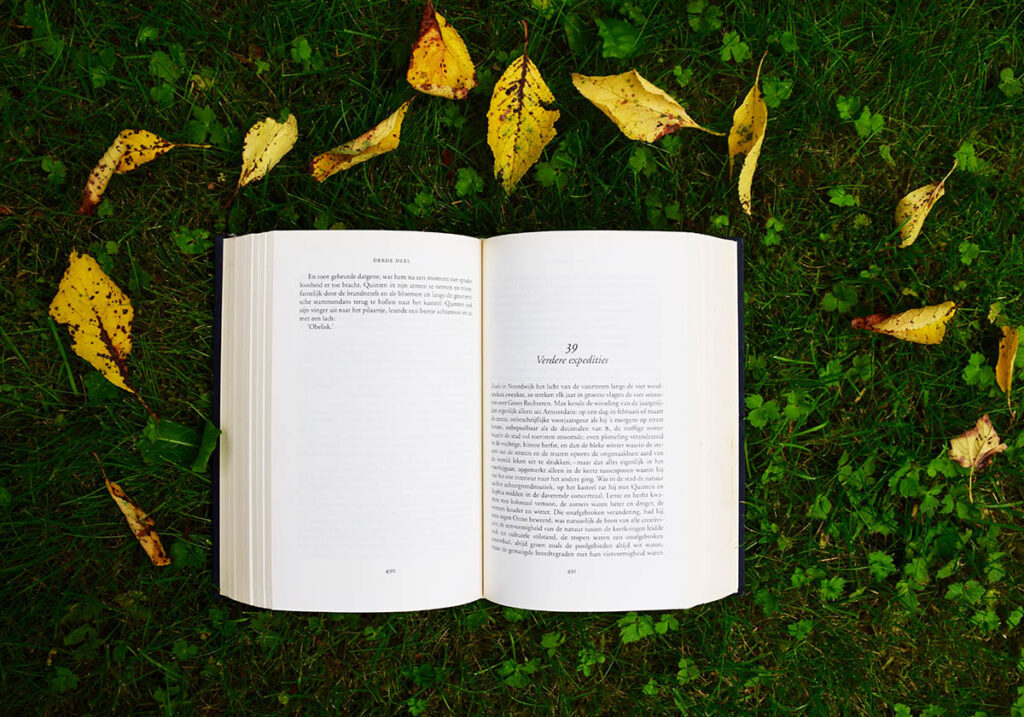The sale of books in supermarkets, hypermarkets, FNAC, CTT and stationery stores was allowed from February 15th, after almost a month of prohibition.
The population's access to books is no longer limited to online platforms, but the problem in the book industry remains: large bookstores and independent bookstores remain closed and these are the preferred places for purchasing books.
Nothing better than a bookseller to advise us on the best writer, the best book, in a bibliotherapy way.
It is difficult to understand why this decision was made. According to an article published in Observador, "at the end of 2020, large supermarkets accounted for 26,1% of the total value of books sold, while bookstores had a share of 73,9%".
In light of this information, the resolution to keep bookstores closed does not make any sense. The lobby of large retailers must have spoken louder about the prohibition of access to this extra slice of profit, but everything would be resolved, with benefits for all, through the possibility of sale or delivery to the wicket in bookstores, as is the case with the food sector. Everyone would win mainly, the readers. All books deserve to be unconfined.
In Italy and Belgium, bookstores were considered essential goods and remained open in the second confinement; in the Nordic countries bookstores have never closed and in countries where bookstores are closed they can sell at the wicket.
What can we do?
We must contribute with our reading habits to transform the book into an essential good in Portugal, as important as our daily bread. The soul also needs food.
Maybe it's just my impression — as the old saying goes, “who walks with hammers only sees nails” — but it seems to me that books are increasingly present in the lives of Portuguese people.
On Instagram with bookstagramers, on GoodReads, one of the most used social networks dedicated to books in the world, and increasingly popular in Portugal, on Facebook with online reading clubs, on ClubHouse do iPhone, with booktubers such as Francisco Geraldes , a young player from Rio Ave Futebol Clube, who found one of his passions in books and reading. The book is alive!
While browsing the Público newspaper recently, I came across a statistic from Porto Business School promoting an online course to be organized with Público, in which it shared “the other numbers of the pandemic”, indicating that 33% of the Portuguese enjoyed reading more during confinement. Numbers far more encouraging than the daily count of deaths and infections.
In Lisbon, libraries have started to deliver books to the home, an initiative that has been widely accepted. In the Algarve, the Municipal Library of Lagoa has reactivated the loan of books and also makes home deliveries, the sale of e-books it also increased, to mention just a few positive indicators.
All these dynamics should force us to look at books in a different way, definitely giving them the importance they deserve. If we do this, the State will do it too.
For those who still have doubts about the importance of books and reading, here are five good reasons:
1) Reading helps us to stimulate creativity, imagination and curiosity, awakening new interests, essential in childhood and throughout our lives.
2) Reading helps us to arouse empathy, solidarity, affection and respect. When we manage to be with ourselves, still, in the company of a book, we develop focus and full attention to the world around us and to the Other.
3) Reading helps us to enrich our vocabulary, speak more freely and write even better.
4) Reading helps us to develop a critical spirit, to be awake, to question our surroundings and to remain active agents in our lives.
5) Reading takes us to travel, to discover authentic or imaginary distant places and to meet unforgettable real or fictional characters, all while we are quiet, concentrated, leafing through the innocent pages of a book.
As stated by Antonio Basanta, in his book read against nothing, «reading is always a change, a journey, leaving to find yourself. Reading, even though it is a commonly sedentary act, returns us to our condition of nomads».
What better advice for these times of confinement? Read. Read a lot. And if you haven't yet tried joining an online reading club, I invite you to join the «O Pleasure of Writing Literary Meetings». Access is free and can be done here.
The months of March, April and May will be dedicated to Travel Literature, starting with the work of Italo Calvino, «The Invisible Cities», followed by «Pés na Terra», by Raquel Ochoa (who will be present at the live session of the meetings on May 1st, at 21:30 pm) and we will end this cycle with “Nos Passos de Magalhães”, by Gonçalo Cadilhe, which will be with its readers on June 3, at 21:30 pm.
The book is dead, long live the book!
Help us to do the Sul Informação!
Contribute your donation so that we can continue to make your journal!
Click here to support us (Paypal)
Or use our IBAN PT50 0018 0003 38929600020 44



















Comments